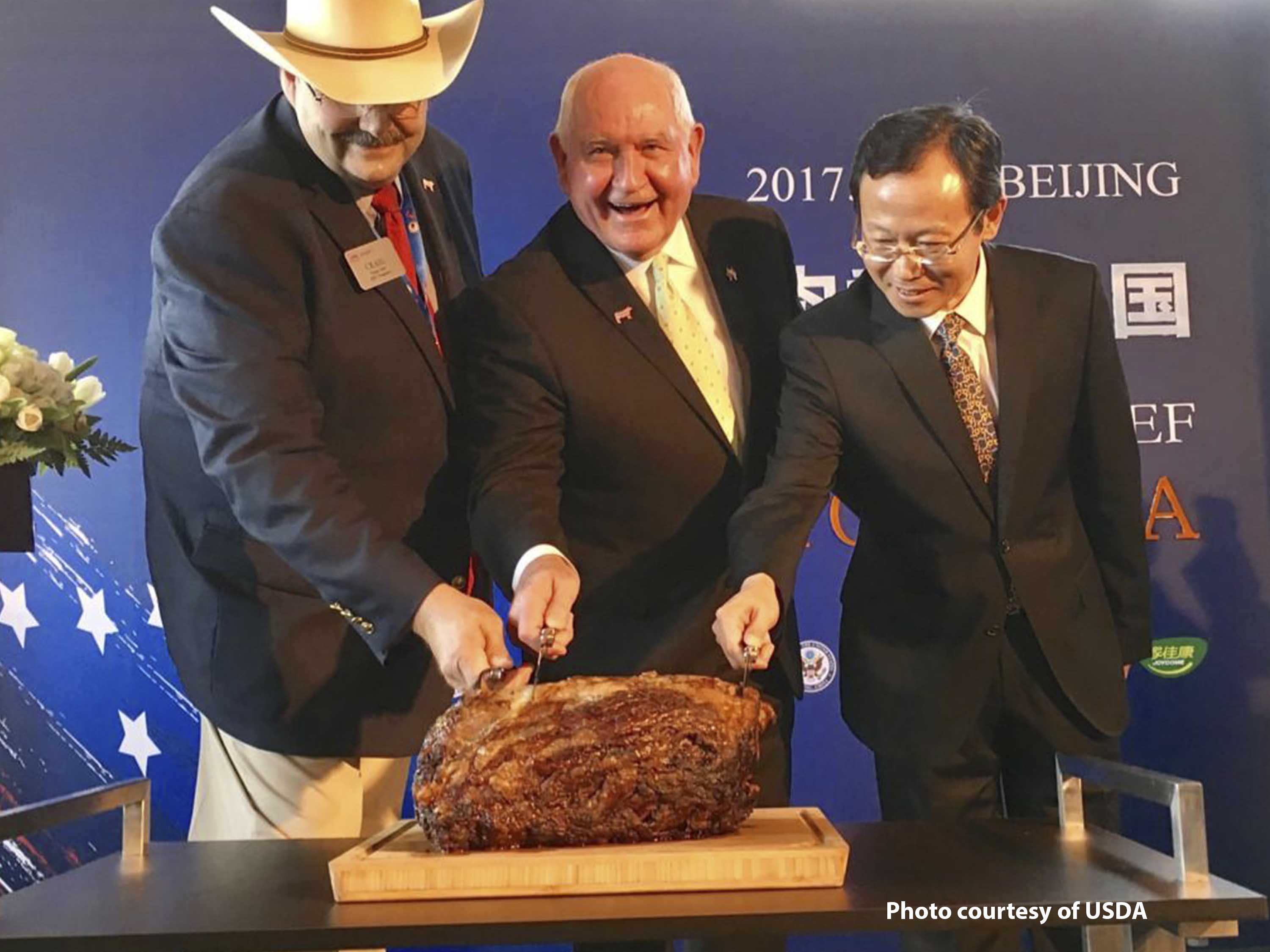After a 13-year hiatus, U.S. beef has made its way back to China.
On Friday, June 30, a delegation of U.S. trade representatives, including U.S. Secretary of Agriculture Sonny Perdue and U.S. Ambassador to China Terry Branstad, celebrated the return of U.S. beef in Beijing.
“Beef is a big deal in China, and I’m convinced that when the Chinese people get a taste of U.S. beef, they’re going to want more of it,” Perdue said. “These products coming into China are safe, wholesome and very delicious. This is also a good harbinger of the kind of relationship that can be developed. We hope there are other things we can cooperate on, and we’re going to use U.S. beef as the forerunner.”
Perdue celebrated the reintroduction of American beef products to China after shipments were halted at the end of 2003. The return of U.S. beef and beef products is a part of the U.S.-China 100-Day Action Plan announced by the Trump Administration on May 11, with the first shipment of U.S. beef arriving in China on June 19.
The first retail outlet in China to obtain a shipment of beef from the U.S. was Walmart’s Sam’s Club store in Beijing. It hit the shelves on June 27.
“For the first time in 13 years, Sam’s Club is bringing prime- and choice-grade short ribs from Nebraska to China, all delivered using a 30-hour cold chain,” according to a statement by Walmart.
China, according to the U.S. Department of Agriculture, has emerged as a major beef buyer in recent years with imports increasing from $275 million in 2012 to $2.5 billion in 2016.
The United States is the world’s largest beef producer and in 2016 was the world’s fourth-largest exporter with global sales of more than $5.4 billion.
Earlier in June, the USDA announced the final details to allow American companies to begin shipping beef exports to China.
Export requirements into China include:
• Beef must come from cattle 30 months of age or younger.
• Cattle must be identifiable to the farm or ranch they were born on in the U.S. Cattle imported to China must be traceable through their port of entry.
• Chilled or frozen bone-in and deboned beef products are eligible for shipment.
• Carcasses, beef and beef products must be uniquely identified and controlled up until the time of shipment.
Perdue and members of the trade delegation also held a series of meetings with Chinese government officials, including Vice Premier Wang Yang and Minister of Agriculture Han Changfu, to discuss expanding trade between the U.S. and China.
Perdue also traveled to Shanghai to tour a major Chinese supermarket where other American products are offered.

